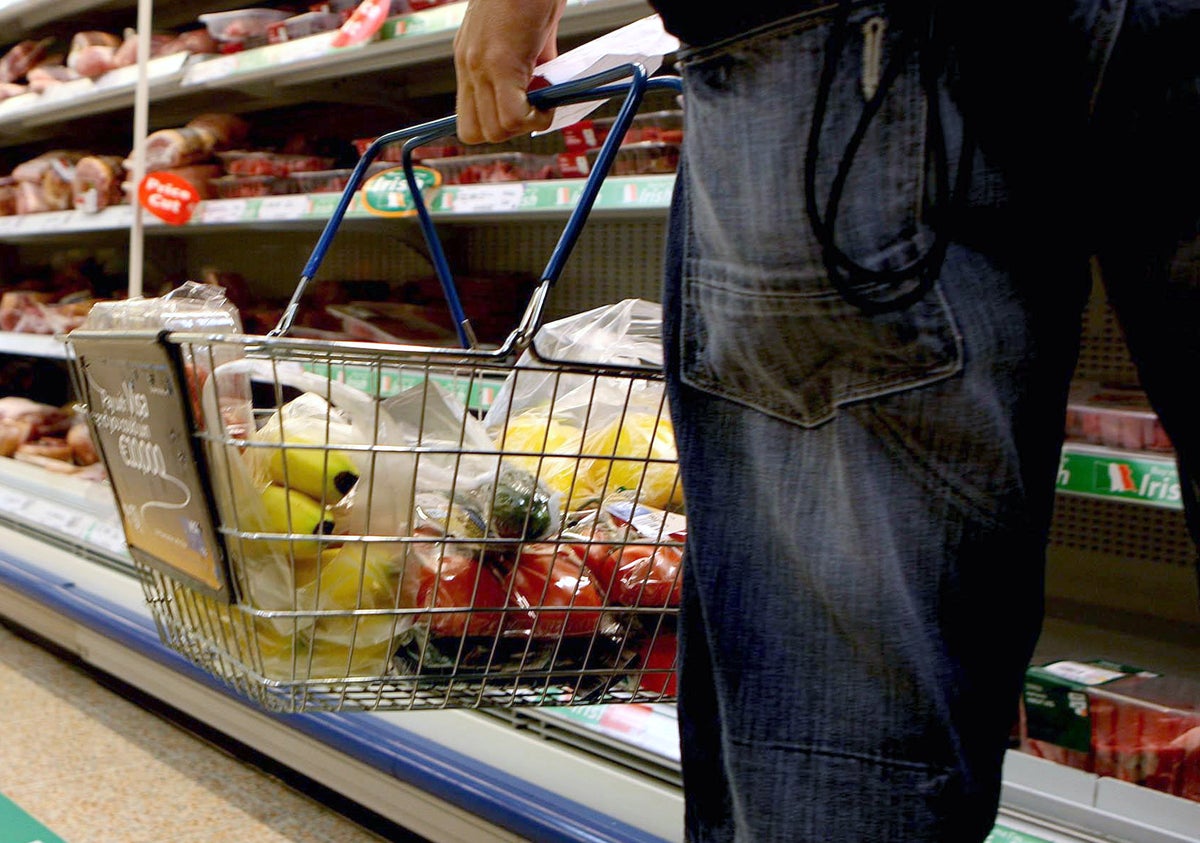
The price of basic groceries has been sent soaring by an “astonishing” 30 per cent as a result of spiralling inflation, figures show.
While overall food and drink inflation went up 15 per cent year-on-year in December across eight major supermarkets, certain products such as butter, milk and cheese rose to almost double that in certain stores.
According to tracking by watchdog Which?, milk was 26.3 per cent more expensive than the previous year, while cheese (22.32 per cent), bakery items (19.5 per cent), water (18.6 per cent) and savoury pies, pastries and quiches (18.5 per cent) also saw higher-than-average price increases.
Among the worst offenders over the three months to the end of December were Utterly Butterly 500g, up from £1 to £1.95 in several supermarkets, Waitrose Duchy Organic Homogenised Semi-Skimmed Milk (1 pint/ 568ml), rising 87.1 per cent from 65p to £1.22, and Creamfields French Brie 200g at Tesco, up 81.6 per cent from 79p to £1.43.
The food item to undergo the worst individual price hike was Quaker Oat So Simple Simply Apple (8x33g) at Asda, which went up 188 per cent from £1 on average in December 2021 to an average of £2.88 12 months later.
Which? noted that, across various franchises, inflation was seen to impact the prices most actuely in supermarket budget or own-brand ranges.
It comes just as consumers turn to the cheaper options to ease the burden of sky-high food bills, send soaring by burgeoning inflation.
Budget range products were up 20.3 per cent and own-brand items increased by 18.5 per cent, while the cost of premium products rose by 12.6 per cent and branded alternatives by 12.5 per cent, the watchdog found.
Which?’s supermarket food and drink inflation tracker records the annual inflation of tens of thousands of food and drink products across three months in Aldi, Asda, Lidl, Morrisons, Ocado, Sainsbury’s, Tesco and Waitrose.
Lidl was named cheapest franchise overall, but its prices went up more than any of the other eight major supermarkets, up 21.1 per cent in the three months to December.
It was followed closely by Aldi, where prices went up by 20.8 per cent, followed by Asda, which saw prices rise to 15.4 per cent – closer to the industry average of 15 per cent.
At the latter end were Waitrose (14.5 per cent), Sainsbury’s (13.7 per cent), Tesco (13.1 per cent), Morrisons (12.9 per cent) and Ocado (10.5 per cent).
As prices continue to rise, so consumer trust in supermarkest continues to fall, Which? reveals.
Its latest Consumer Insight survey found trust in supermarkets among shoppers had fallen from positive 67 in May 2021 to positive 42 now.
Waitrose had the lowest level of trust (positive 29) among all consumers, although trust levels among its own customers was significantly higher at 54.
Price rises emerged as a common reason for a lack of trust, particularly the perception prices were sometimes artificially inflated and went beyond what was necessary for businesses to offset their own rising costs.
Which? is campaigning for all supermarkets to ensure budget line items that enable a healthy diet are widely available, particularly in areas where people are most in need.
It is also calling on retailers to make pricing and offers more transparent and provide targeted promotions to support people in the areas struggling the most with access to affordable food.
Which? head of food policy Sue Davies said: “We know food prices have risen exponentially in the last year and our inflation tracker shows the dramatic impact this is having on everyday products at the supermarket.
“Some households are already skipping meals to make ends meet and our findings show trust in supermarkets taking a hit as many people worry they are putting profits before the people suffering during this cost-of-living crisis.
“Supermarkets must do more. Which? is calling for them to ensure everyone has easy access to basic, affordable food ranges at a store near them, particularly in areas where people are most in need, as well as pricing which enables people to easily work out best value and promotions to support people who are particularly struggling.”







